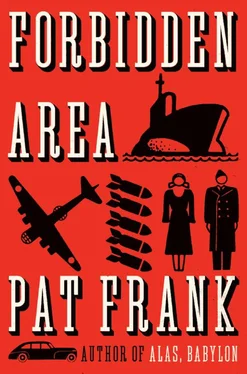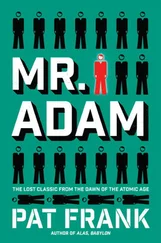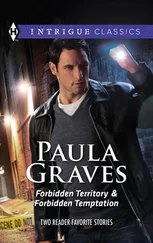Pope got out of his chair. Henry stepped in front of Nina and loosened his shoulders and spread his feet a little. He hoped that Pope would swing on him. If Pope swung Henry knew what he was going to do. He was going to break his arm and then smash his windpipe with the edge of his hand. Of all the courses in the Marine Corps schools, judo had been most beneficial for Henry.
Pope decided not to swing. He said, “I don’t want no more layin’ on the beach.”
Henry turned his back on him and said, “Let’s go, Nina.”
They drove to Jacksonville Beach on AIA, not speaking of what was in their minds. They went to Millie’s and danced and drank beer, but the beer seemed tasteless and there was no rhythm in the music. Finally Nina said, “I guess I’ll get myself my own room tomorrow. I can’t stand him any more.”
“I wish I could take you to the Coast with me,” Henry said.
“Wouldn’t I look good on a troop transport? I can wait, Henry. It isn’t so bad waiting if you’ve really got somebody to wait for. You’re somebody, now.”
He looked at his watch. “Almost twelve. Let’s go back to our place.”
“Do we have to go back there, Henry? It scares me. Why can’t we go somewhere else?”
“It’s just our place.”
“You really want to go back there because you think that thing will come out of the ocean again, don’t you?”
“I keep thinking about it,” he admitted.
She said, “All right, if you have to. But I hope we never see it again.”
He paid the check and they drove south again, past Ponte Vedra and on along the unlighted, deserted highway until they came to their place. There was a soft south wind, and it was a night unusually warm for the season. Henry parked, as usual, off the road so that the car was shadowed by the fronds of palms. She took off her shoes, and Henry found the swim suits and blankets in the back seat, and they got out and climbed over the dunes to the sea. That night, while they undressed, she did not tell him not to look.
SMITH WATCHED his speedometer carefully once he was headed north from St. Augustine on AIA. The shell road leading to the beach would be easy to miss, and there were few check points beyond the last cottage. There was the place on the road where pocked asphalt gave way to conquina. Then, several miles beyond, was a jog in the otherwise uncurving highway, a cluster of billboards, and finally a spring and drinking fountain. It was exactly three and three-tenths miles from the spring to the shell road. He had been careful to measure it, several months before, in daylight. He drove very slowly on the last three-tenths until his headlights picked up a break in the solid wall of palmetto. He turned into the shell road and allowed the wheels to follow the ruts. When the breakers gleamed ahead he switched off his lights, shifted into low gear, and crept out onto the hard-packed beach. He saw no other tire marks. He swung in a circle, and re-entered the path so that his getaway would be quick. He stopped the engine, took a flashlight from the glove compartment, and tested it once again. Now it was necessary to make a reconnaissance, as he had been instructed to do, but before that he would rest for a moment and think. He had been taught that the time to meet an emergency was before it happened. It had been taught that the most minute flaw in a plan always developed into a disastrous crevasse in the stress of crisis. He must reconstruct everything he had already done, and he must be certain that future action was safe.
He had stayed with Betty Jo, as planned, until ten. She had been glad enough to see him, and delighted when he told her he wasn’t going to remain in Jacksonville with his friends. He was just going to pick them up downtown, drive them to Jacksonville, and return immediately. He would be back, he told her, about five in the morning. She should leave the door open and he would slip in and get some sleep and then they would have breakfast together before she drove to work. He looked at his watch. It was one-ten. The timing was just right, and the beach apparently deserted. But he had to make sure.
Smith got out of the car and walked north along the beach, following a wavy line of small shells, the signature of the last high tide. Now the tide was low, the moon in its last quarter. It was considerably darker than the night he had landed, but still the night was crisp and clear, the visibility good, and the moonlight bright enough so that the figure of a man, say a surf fisherman, would be visible at a quarter mile against the white sand. He paced off three hundred yards, stopped, scanned the beach and the crests of the dunes to the north, and then turned south. He walked leisurely and confidently. He passed the shell road, its entrance blocked by his car, and went three hundred paces to the south and surveyed the beach again. There was no doubt of it, it was all clear. He returned to the car, took the flashlight from his pocket, pointed it at the sea, apparently barren of ships and life, and gave the signal. Two shorts—three longs—two shorts. He repeated it, dit dit, dah, dah, dah, dit dit. He waited for the space of two breaths, and the answer came, one long, one short.
Nina and Henry had dressed and were walking at the edge of the surf when they saw the reflection of headlights in the sky far to the south. They paid no attention until they saw that the car was moving very slowly, barely creeping. When it soundlessly turned into the shell road, Nina whispered, taut with fear, “What if it’s Father?” Before he could answer she broke away from him and ran for their hollow.
Henry doubted that her father could have tailed them, or somehow discovered their place. It wasn’t plausible. Even if it was her father, he was damned if he was going to run. So he followed her, without haste, and joined her in the hollow between the dunes just as the car’s lights went off. Nina stepped close to him, pressed herself against him, and said, “You don’t think it’s Father, do you, Henry?”
“I don’t give a damn if it is,” Henry said.
“Maybe it’s only a fisherman,” she said, finding composure in his strength.
“Not at this moon and this tide,” he said. “It’s probably just a guy and girl doing the same thing we’re doing.”
The car, lights extinguished, ran out on the sand and made a tight circle, tiny shells crunching under its tires. Henry saw that it was a new Chevvy, two tone. White and green, he thought, although color was deceptive in the moonlight. It entered the shell road again, and its motor died. They waited for something else to happen and when nothing happened Nina said, “I guess you re right. Just a couple, smooching.”
But, after a minute or so a man got out of the car and walked to high-water mark, then turned north, towards them. He following the line of shells, his head moving from side to side as if he searched for something. Nina shrank lower. “Don’t move,” Henry whispered. “So long as you don’t move he won’t see us.”
When the man was directly opposite, Henry saw that he was in Air Force uniform.
“What’s he doing?” Nina asked, after he had passed.
“Maybe he was down here fishing just before dark,” Henry said, “and lost his wallet or maybe a ring or something. Now he’s looking for it.”
“Think we ought to go out and help him?”
“No.” Henry’s reply was instinctive and immediate. In the back of his mind he didn’t believe the Air Force man was looking for anything but people. In the back of his mind was the shock and terror of that other night when the armed men had swarmed over the beach, and a car had been landed from a submarine. Maybe something was going to happen again. If anything happened again, this time his own action would be different. Maybe he was going to get another chance.
Читать дальше












